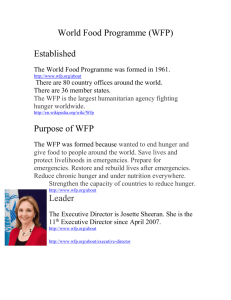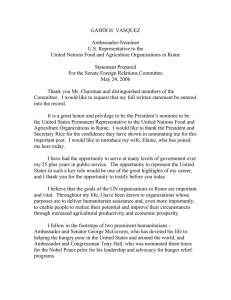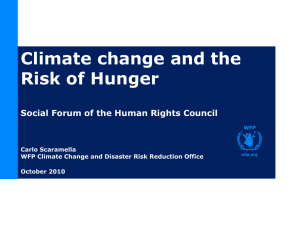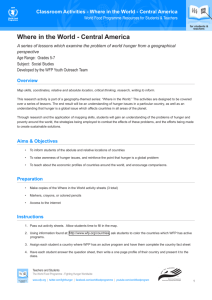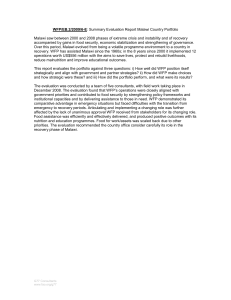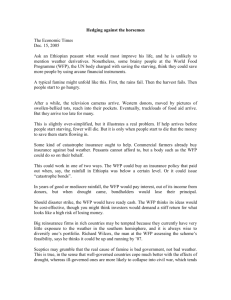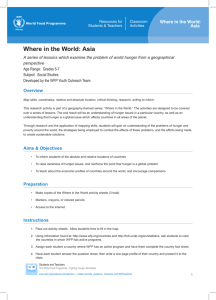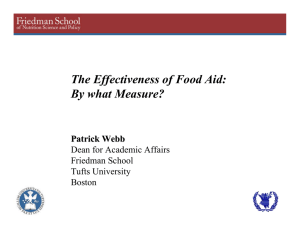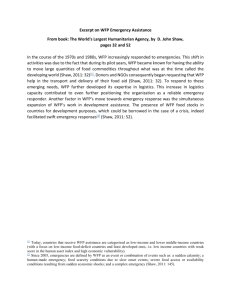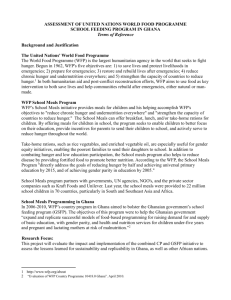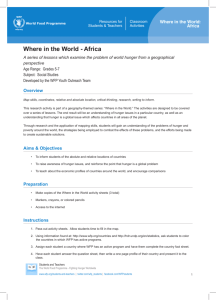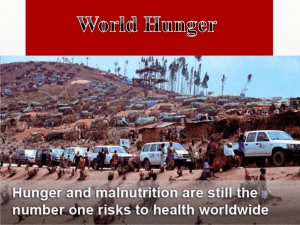Where in the World - Central America
advertisement
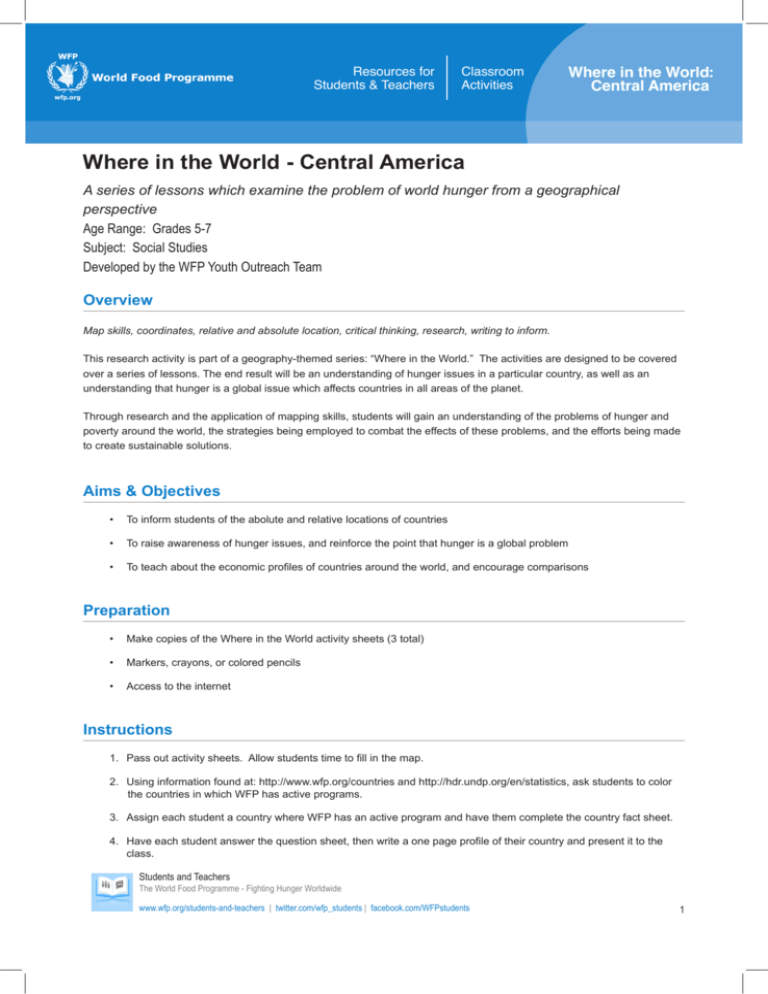
Resources for Students & Teachers Classroom Activities Where in the World: Central America Where in the World - Central America A series of lessons which examine the problem of world hunger from a geographical perspective Age Range: Grades 5-7 Subject: Social Studies Developed by the WFP Youth Outreach Team Overview Map skills, coordinates, relative and absolute location, critical thinking, research, writing to inform. This research activity is part of a geography-themed series: “Where in the World.” The activities are designed to be covered over a series of lessons. The end result will be an understanding of hunger issues in a particular country, as well as an understanding that hunger is a global issue which affects countries in all areas of the planet. Through research and the application of mapping skills, students will gain an understanding of the problems of hunger and poverty around the world, the strategies being employed to combat the effects of these problems, and the efforts being made to create sustainable solutions. Aims & Objectives • To inform students of the abolute and relative locations of countries • To raise awareness of hunger issues, and reinforce the point that hunger is a global problem • To teach about the economic profiles of countries around the world, and encourage comparisons Preparation • Make copies of the Where in the World activity sheets (3 total) • Markers, crayons, or colored pencils • Access to the internet Instructions 1. Pass out activity sheets. Allow students time to fill in the map. 2. Using information found at: http://www.wfp.org/countries and http://hdr.undp.org/en/statistics, ask students to color the countries in which WFP has active programs. 3. Assign each student a country where WFP has an active program and have them complete the country fact sheet. 4. Have each student answer the question sheet, then write a one page profile of their country and present it to the class. Students and Teachers The World Food Programme - Fighting Hunger Worldwide www.wfp.org/students-and-teachers | twitter.com/wfp_students | facebook.com/WFPstudents 1 Resources for Students & Teachers Classroom Activities Where in the World: Central America Answer Key: Mexico Cuba Dominican Republic Belize Jamaica Honduras Guatemala El Salvador Haiti Puerto Rico Nicaragua Costa Rica Panama Countries with a WFP presence: Cuba El Salvador Guatemala Haiti Honduras Nicaragua Students and Teachers The World Food Programme - Fighting Hunger Worldwide www.wfp.org/students-and-teachers | twitter.com/wfp_students | facebook.com/WFPstudents 2 Where in in the the World: World: Where Horn of Africa Central America Activity Sheet Name: _______________________________ Label the map using the list of countries. Then, color the countries where WFP has active programs. Belize Costa Rica Cuba Dominican Republic El Salvador Guatemala Haiti Honduras Jamica Mexico Nicaragua Panama Where in in the the World: World: Where Horn of Africa Central America Activity Sheet Name: _______________________________ Complete the fact sheet for your country using WFP’s website and other online resources. Name of Country Population Government GDP Find your country Official Language Climate Life Expectancy Global Hunger Index Threats to food security Capital Religions Percent Undernourished Absolute Location Latitude: ____________________ Longitude: ___________________ Relative Location My hometown: __________________ My chosen country is _____________ from my hometown. WFP Activities Chief Exports Where in in the the World: World: Where Horn of Africa Central America Activity Sheet Name: _______________________________ Answer the following questions based on the country you are researching. 1. Which countries share boundaries with your country? Give relative locations. ____________________________________________________________________________ ____________________________________________________________________________ ____________________________________________________________________________ 2. How does the Global Hunger Index of the neighboring countries compare to your country? ____________________________________________________________________________ ____________________________________________________________________________ ____________________________________________________________________________ 3. Does WFP have active programs in the neighboring countries? If yes, what are the programs? ____________________________________________________________________________ ____________________________________________________________________________ ____________________________________________________________________________ 4. Choose one WFP program to describe. What are its desired outcomes? What would it take to reach those outcomes? ____________________________________________________________________________ ____________________________________________________________________________ ____________________________________________________________________________ ____________________________________________________________________________ ____________________________________________________________________________
